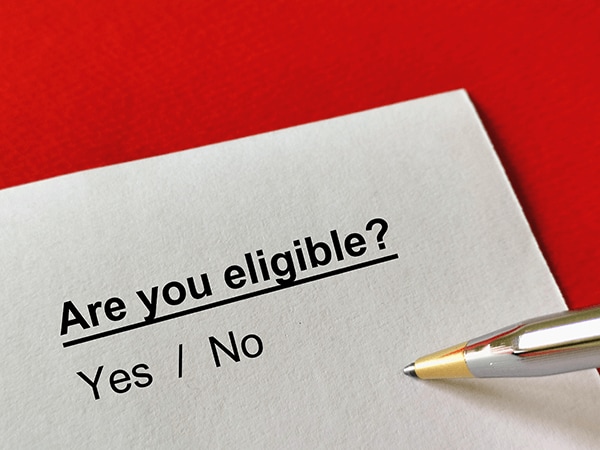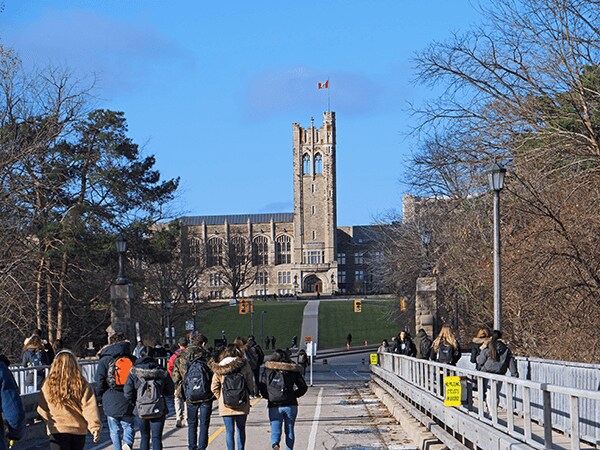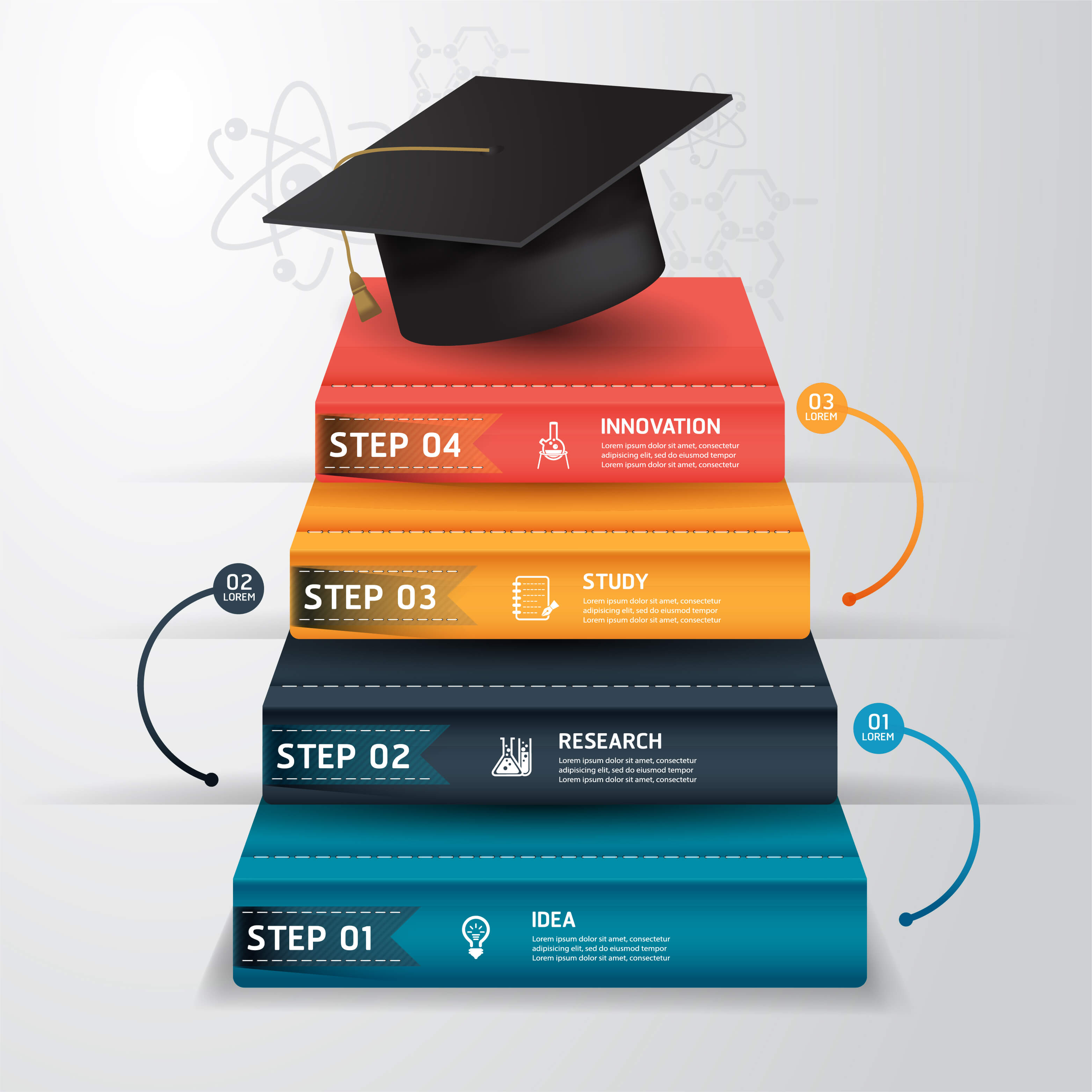
#PTE makes it easy
Pearson's Test of English (PTE) is the most standardised test throughout the world. It is accepted by 90% of the universities and top colleges. If you are trying to get a Letter of Acceptance from a Canadian Designated Learning Institute (DLI), the best way to go about this is to first get a good score in on the PTE test.
Click here to find all the institutions that accept the PTE Academic test score
For Indian Students who are applying for an AIP Study Visa
What is the meaning of an Approval-in-Principle (AIP) study visa?
This is an added measure to support all students from abroad. The process of getting a temporary visa has become two-staged. In the first stage, students can get an Approval-in-Principle which can enabling them to start their Canadian education online before getting into Canada. They can start learning while applying for a visa to get into Canada physically and continue their education. This means you don't have to wait until you get your student visa to start learning.
(Non-Study Direct Stream) and get the regular study permit application, you
will have to take the PTE test.
- Letter of Acceptance from DLI
- PTE Academic test score
- Proof of financial ability to pay for tuition + transportation + living
- Most recent secondary or post-secondary school transcript expenses
- CAQ for Quebec-bound students
There are other requirements that may apply to you. Learn more here.
For more details on the 2nd stage of obtaining the study visa, visit this website - Canada.ca
Click here to find a test center around you.
Here are some important topics for your reference:
Applying abroad for studies requires more than just money. It requires you to be resilient and patient. You will encounter new problems every day and have to face them head-on to get to your dream college. There is a lot of research ahead of you - about the country you intend to live in, the kind of colleges they have, the requirements of the college, the process of getting a visa, the tests you will have to take to get in, etc. A few things to keep in mind are - no research is wasted, it's better to apply sooner and start preparing than wait till you have everything, use all the resources you have at your disposal to get where you want to be and don’t give up on your first try.
Reasons To Study In Canada
Out of all the places to study abroad, Canada is one of the best options in many ways. A lot of students from all over the world are clamouring (Keep some positive words instead of clamoring) to get into Canadian Universities. Is it because of the incredibly wide and open spaces, multicultural diversity, and the clean environment? That may be so, but there are so many other compelling reasons to choose Canada over the other countries and here are some of them -
- Excellent educational system - A degree or a diploma from Canadian colleges and universities is recognized around the world because of its exemplary syllabus. They include cross-disciplinary studies and develop transferable skills in students, like critical thinking, which is useful throughout life.
- They also use cutting-edge technology and digital media so that when students graduate, they are updated with the latest technological advancements.

- Best quality of life - Arguably, the most compelling reason to move to Canada is their high standard of living. It ranks first in the world when it comes to the quality of life because of its cost of living, safety, stability, diversity, respect for individuals, respect for each community, and work-life.
- Affordable living - UK, Canada is the cheapest English-speaking country without compromising on the quality of education. Return on investment is definitely more in Canada for Indian students. There are a variety of scholarships to apply for if you want to cut down your expenses.
- Become tech-savvy - Canada’s education focuses a lot on engineering industries like digital media, telecommunications, video games, aeronautical, biotech, etc. Canada was the first country to link its libraries and schools online, so unsurprisingly, most households have an internet connection. Montreal even provides free Wi-Fi across the city, which means that everyone there is really advanced in technology.
- Start earning while you are still learning - Canadian governments have special regulations for international students that provide them with many of opportunities to support themselves. Because of the regulations, you can work up to 20 hours weekly and full-time during vacations. This can be done because they allow you to work on your student permit and there is no need to get a work permit, to get an internship in any company.
Eligibility Requirements to Study in Canada
The basic requirements to study in Canada for Indian students are mentioned below -
For an undergraduate or Bachelor’s degree
- Score a minimum of 70% in 12th standard / grade
- Pass any standardized language and general exams recognized by the college you want to take admission to, i.e., the Pearson Test of English (PTE). Check the respective college website to know the minimum score required to get into the college of your choice.

For post-graduation or Master’s course
- You should have at least 2 years of full-time work experience.
- You should have scored the minimum required marks in any of the standardized language and general exams like PTE (check the minimum score required for your course and college).
- You should have studied Mathematics until the 12th standard.
- You should have completed 4 years of Bachelor’s degree with more than 70% as an average score.
The process of getting a Canada student visa is greatly facilitated and quickened if you enroll with a Student Direct Stream (SDS). But it also requires you to pay the fee for the entire first year instead of just the first-semester fee. There are other requirements as well - A guaranteed Investment Certificate (GIC) of $10000 and more than 6 bands in each module.
You can choose Non-SDS route if you don’t meet the requirements of SDS, many students are fulfilling their aspirations abroad with this route. The other important thing you must know is that under this route, it’s not mandatory to provide a GIC certificate of $10000. PTE is recognized under this route and approved by IRCC India.
Your responsibilities once you get the Canada study visa
- Make continuous progress in your course.
- Abide by all the requirements that are written on your study permit.
- Stop your education if you no longer wish to or cannot follow the requirements listed on your permit.
- Leave the country once your permit expires.
- Check the permit if you are allowed to travel before planning any trips.
- Only apply for jobs if you have a work permit as well.
Cost of Studying in Canada
There are some excellent scholarships in Canada that you can apply for to cut down on your education costs. You can also work on campus even if you do not have a work permit if you follow all the requirements mentioned here. Assuming that you have neither of those things, here are the average costs that you are looking for when you go to study in Canada -
- The average cost of getting an undergraduate degree - Your cost for a Bachelor’s degree will vary depending on the college and the degree you choose, Still, but the average cost is somewhere between CAD 12,000 (approximately 7 lac rupees) to CAD 25,000 (approximately 14 lac rupees) per year.
- The average cost of getting a postgraduate degree - A master’s degree costs anywhere from CAD 24,000 (approximately 13 lac rupees) to CAD 35,000 (approximately 20 lac rupees) per year.
- The average cost of accommodation in Canada - The average cost will vary from city to city but studying in Canada costs rupees about 55,000 for Indian students per month.
- The average cost of daily expenses in Canada - If you are commuting and eating out daily, you can expect to spend about 2,000 to 3,000 every day. You can cut down on costs by getting a monthly pass and making your own meals.
Plus, the student visa costs 150 CAD, which is a little more than 8 thousand rupees.

Admissions Cycles in Canada
Unlike Indian universities that only have one cycle of admissions, colleges in Canada offer 3 intakes -
- Fall - This is the most convenient option for Indian students as it starts in September
- Winter - If you miss the fall intake, you can try for the winter cycle. It starts in January, giving you ample time to gather all the relevant documents and make arrangements.
- Summer - This intake usually starts around April or May and is only available for a limited number of courses so, check with your desired college if they have a summer intake before planning.
The deadlines for applying to colleges and universities in Canada are pretty flexible. So if you miss a deadline, call the institution and ask for their last deadline or the next intake.
PTE exams are conducted all year round so once you decide on the intake program you will be going for, you can choose which month you will be taking the PTE for Canada.

Canada Student Visa Requirement
Before you can study in Canada, student visa rules dictate that you follow the below-mentioned guidelines to the T. The Canada student visa process is very simple if you have all the required documents. If you can present the Letter of Introduction and the required documents to the Immigration Officer at the airport and the border control officer, they will validate the papers. Once that is done, you will be given a study permit to live and study in Canada. You can check out the Canada student visa checklist below -
- A valid passport is a must.
- You will have to provide attested copies of 10th and 12th standard certificates. If you are applying for a postgrad, your undergraduate degree certificate is also necessary. If you have participated in any extracurricular activities or won any competitions, it is recommended that you provide the certificates for the same.
- References - Academic and Employer (if you have any work experience)
- You need to have 2 passport-size photographs that were taken recently. They should have a plain background, not be blurred, and nothing should be worn on your face (unless it is for religious purposes).

- Before you can be permitted to study in Canada, you should be able to prove that you can pay your fees, living expenses and return transportation for yourself.
- Proof that you can speak English proficiently by giving a Pearson Test of English Academic (PTE) certificate.
- You should also be able to prove that if any of your relatives or family members come with you to Canada, you will be able to provide for their living expenses and their return from Canada.
- You will have to prove that you have no criminal record by getting a police certificate. This is to certify that you will obey the law laid by the Canadian government.
- You will be required to provide a medical certificate to show that you are in good health. There is a mandatory Immigration Medical Examination (IME) in which you will be required to book an appointment with one of the doctors on the panel. They will perform a complete medical check-up and give you a certificate and forward your medical information to the relevant authorities.
- You will have to prove that you will leave Canada once your study permit expires.
- Statement of Purpose may not be a mandatory document to submit during this process, but it is recommended that you submit as you will be given an option. This document should have the reason for choosing Canada and a particular educational institution.
Once you get the student visa, you will be able to apply to a Designated Learning Institute (DLI). The process of studying in Canada gets very smooth after this.
Step By Step Admissions Process
- Check out which universities provide the course you want to pursue and can apply in the intake cycle you want.
- Based on your grades and budget, narrow down the colleges and universities you can attend.
- Check and see if these institutions are Designated Learning Institutions (DLI). You should remove the institutions that are not DLI from your list, as you can fall into scams. The government of Canada recognizes certain institutions as DLI if they are trustworthy, so you should only apply there.
- Research your course and go to the websites of the colleges that you have decided to go for.
- Check the requirements of each college and see which of them you can fulfil. This should narrow your list of colleges again. Some colleges require you to provide previous job experience information if you graduated more than 2 years and are over 25 years old.
- Canada is bilingual. The people living there only speak in either English or French. You will have to be proficient in either language to study and live there. To submit proof that you are fluent enough, you will have to give an English Language test or French Language test. For English, most universities & colleges recognize the Pearson Test of English Academic (PTE Academic) as it is the most prestigious and the most standard test the world. The test is approved by IRCC India under the Non-SDS route. If you are planning to study your course in French, then you will have to give a language test.

Once you get the results of the test, assemble all the documents needed to apply for your desired colleges. Check their list of requirements and submit accordingly. The common requirements are - attested copies of 10th, 12th and graduation, application forms, letters of intent, academic references, etc. Submit the documents along with the translated documents that are certified by a professional translator. Make sure to submit everything within the deadline given by each college.
Confirm that you can finance at least the first year of your studies and live in Canada. You should also be able to pay for your flight to and from Canada.
Once you get the acceptance letter, there are a few extra steps that you will have to follow -
- Get proof that you will be able to pay for the first year of education
- Check if you need a study permit to study in the region that you are going to. If you do, apply for a study permit in Canada immediately.
- Get a plane ticket to Canada after you have confirmation the study permit.
- After arriving in Canada, you will have to attend college once before the class starts to enroll in person officially. Once you do that, you can attend college when the classes start.
Scope of Employment in Canada

Canada’s student visa rules may or may not permit you to work in Canada. If you do not have a permit to work through a student visa, you will have to get a work permit within 90 days of completing your degree. This permit will let you work for the same duration as your degree for up to 3 years. You can work in most of Canada if you can speak English fluently, but for certain areas, you may have to learn French as well.
Due to COVID-19, employment in Canada has risen significantly, and many workers in the food, retail, and accommodation fields have been let go. Although many industries are now making progress, some jobs were high paying before and after the pandemic, like jobs in the healthcare sector. Therefore, the best courses to study in Canada are the ones that result in jobs in high demand and those that are high paying as well. Some of them are -
- Physicians and Dentists - Average salary is C$142,000. Experienced Surgeons and Psychiatrists get paid about C$200,000.HR - Recruiters are always in demand, with an average salary of C$44,000 to C$52,000
- Information security analysts - Cybersecurity is an important field nowadays, with a lot of opportunities in Canada that pay around C$60,000 to C$70,000
- Marketing analysts - These jobs get around C$60,000, so studying business analysis, research analysis, or data analysis is beneficial.
- Engineers - This is still a high-earning field with an average salary of C$60,000 to C$90,000.
- Financial analysts - A financial analyst job pays about C$50,000 and is in high demand in certain regions but not all.
- Teachers and Professors - If you have MS in Education, then you can earn around C$60,000 to C$70,000.Logistic workers - Supply chain and logistics degree will come in handy to earn about C$30,000.Accountant - If you have studied Financial Planning or Accounting, you can get a salary of about C$50,000.
There are still a lot of opportunities to get a work permit in Canada after the pandemic. But now you must submit a few other documents like the biometric to prove that your health is in optimal condition. If you had applied for a degree before the pandemic and continued the course online because of the lockdown, you can apply for a work permit in Canada.
*Information related to fees, scoring, etc are tentative; please refer the respective
university/college website before you apply for the same

